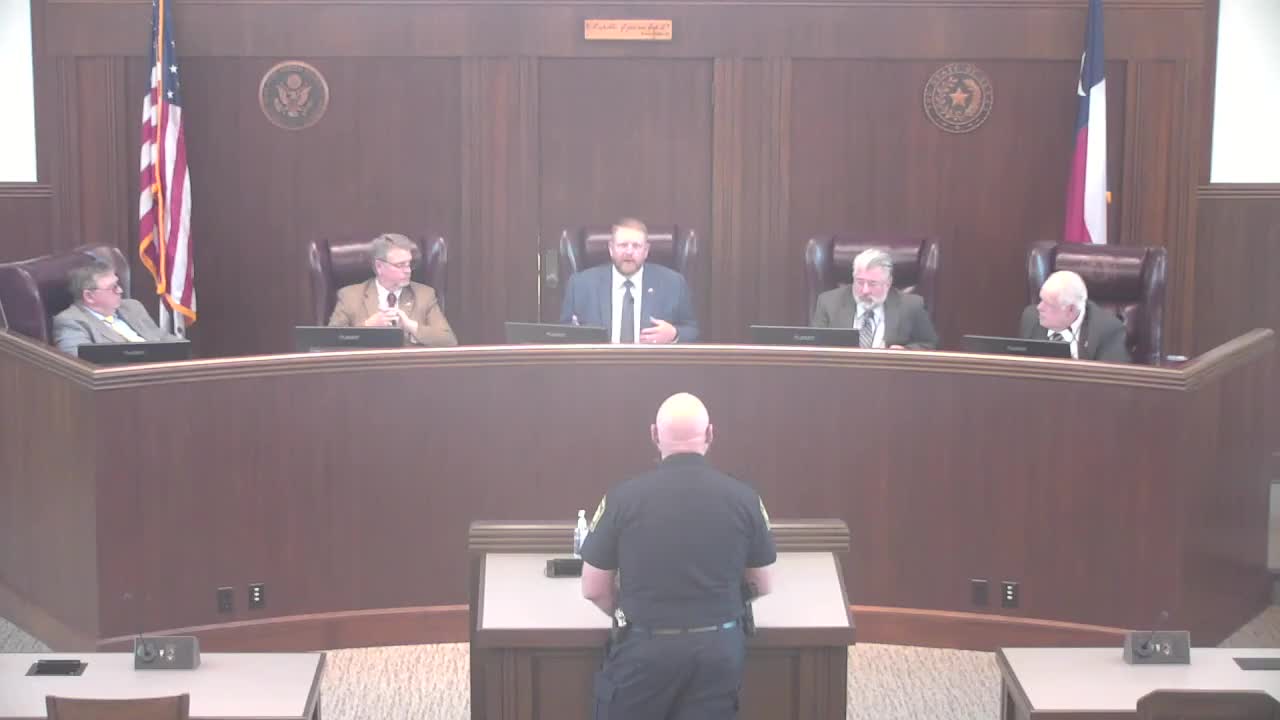Budget Challenges Spark Debate Over Constable Pay Disparities
June 04, 2024 | Guadalupe County, Texas

This article was created by AI summarizing key points discussed. AI makes mistakes, so for full details and context, please refer to the video of the full meeting. Please report any errors so we can fix them. Report an error »

During a recent government meeting, officials engaged in a detailed discussion regarding the complexities of job classifications and compensation within law enforcement and emergency services. The conversation highlighted the challenges of aligning pay rates for positions such as deputy fire marshals and constables, particularly in relation to their responsibilities and the varying levels of experience among employees.
One key point raised was the disparity in pay between constables and sheriff's office investigators, with concerns that current compensation may not adequately reflect the responsibilities required of these roles. Officials acknowledged that while constables play a crucial role in law enforcement, their flexibility in duties complicates direct comparisons with more structured positions like sheriff's deputies.
The dialogue also touched on the importance of job descriptions accurately reflecting the scope of work. There was a consensus that titles such as \"investigator\" or \"inspector\" could limit the perceived capabilities of the roles, potentially affecting recruitment and retention of qualified personnel. The need for a more consistent approach to compensation across departments was emphasized, as officials recognized that individual circumstances often lead to inequities in pay.
Moreover, the discussion underscored the broader implications of these compensation issues, particularly in attracting and retaining skilled employees in a competitive job market. Officials expressed a commitment to finding a middle ground that balances the unique needs of individual departments with overarching policies that govern all county employees.
As the meeting concluded, participants acknowledged that while progress has been made, the ongoing evolution of job classifications and compensation structures remains a work in progress, requiring continuous evaluation and adjustment to meet the needs of both the workforce and the community they serve.
One key point raised was the disparity in pay between constables and sheriff's office investigators, with concerns that current compensation may not adequately reflect the responsibilities required of these roles. Officials acknowledged that while constables play a crucial role in law enforcement, their flexibility in duties complicates direct comparisons with more structured positions like sheriff's deputies.
The dialogue also touched on the importance of job descriptions accurately reflecting the scope of work. There was a consensus that titles such as \"investigator\" or \"inspector\" could limit the perceived capabilities of the roles, potentially affecting recruitment and retention of qualified personnel. The need for a more consistent approach to compensation across departments was emphasized, as officials recognized that individual circumstances often lead to inequities in pay.
Moreover, the discussion underscored the broader implications of these compensation issues, particularly in attracting and retaining skilled employees in a competitive job market. Officials expressed a commitment to finding a middle ground that balances the unique needs of individual departments with overarching policies that govern all county employees.
As the meeting concluded, participants acknowledged that while progress has been made, the ongoing evolution of job classifications and compensation structures remains a work in progress, requiring continuous evaluation and adjustment to meet the needs of both the workforce and the community they serve.
View full meeting
This article is based on a recent meeting—watch the full video and explore the complete transcript for deeper insights into the discussion.
View full meeting
